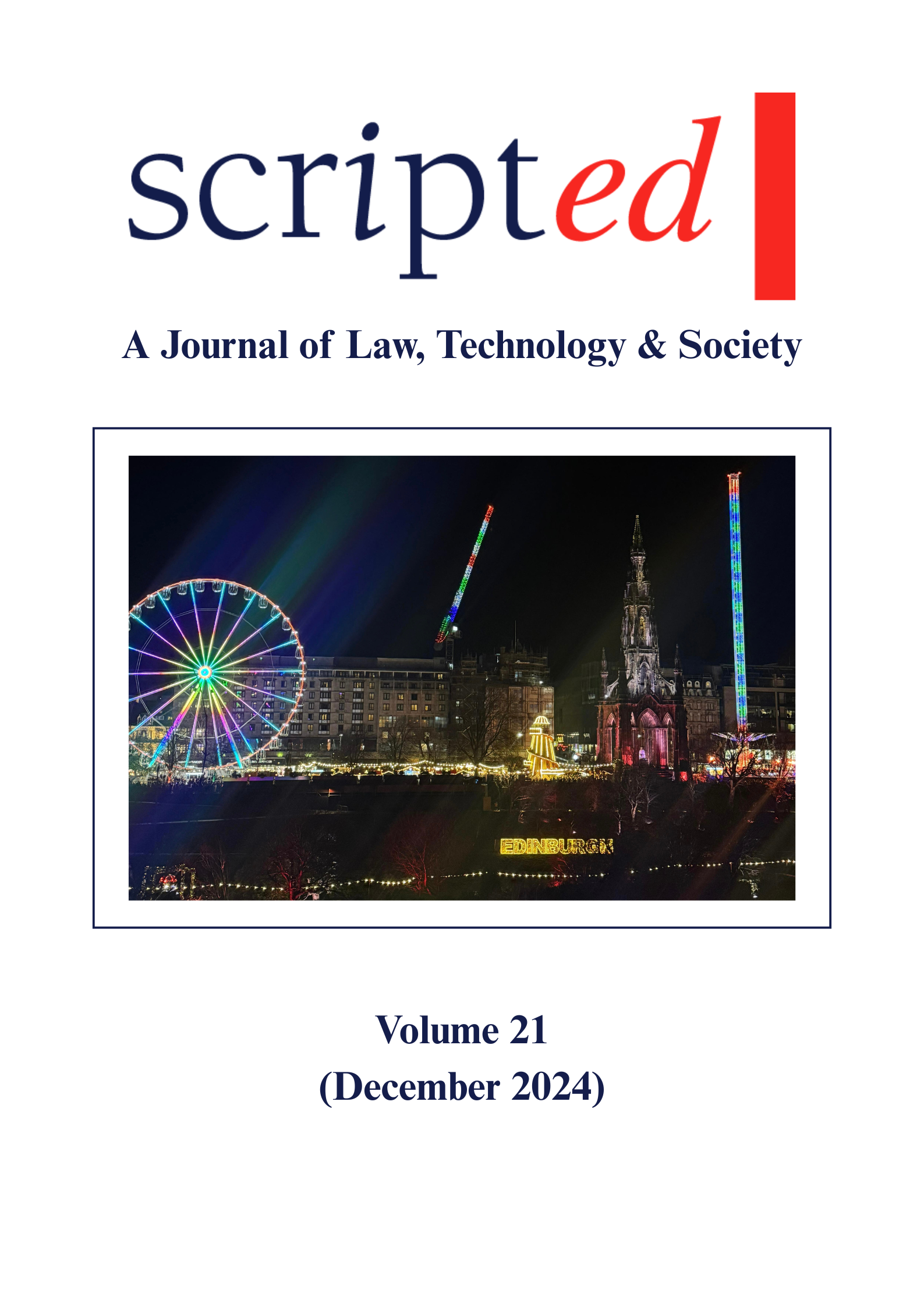Where Privacy Ends and Politics Begin
Case Comment on Association for Democratic Reforms v. Union of India
DOI:
https://doi.org/10.2218/scrip.210024.86Keywords:
Privacy law, surveillance, politics, political funding, right to information, free expressionAbstract
In February 2024, the Supreme Court of India unanimously struck down the Electoral Bond Scheme, which created a mechanism for unlimited funding to political parties by individuals or corporations, details of which were barred from being revealed to the public and excluded from the scope of right to information legislation. While striking down the Scheme as unconstitutional, the Court considers the right to privacy of political affiliation and assesses whether the Scheme balances the right to information of the voter with the right to privacy of the donors. This case comment places specific focus on this issue. I argue that while protecting the privacy of political affiliation is desirable in the age of algorithmic political surveillance, the majority opinion should have created stronger safeguards when extending such privacy to political contributions, to protect only genuine contributions by individuals and exclude corporations. With respect to the comparison of the rights to information and to privacy, I argue that the majority opinion rests on reasoning which may not be effective to protect the right to information in cases of public interest since it is focused on the degree of the bar on disclosure of information on political funding and whether the measure is the least restrictive method of balancing these rights. Restricted to the issue of this comparison, I argue that the concurring opinion of the Court provides the more effective precedent for the protection of the right to information in cases of public interest.
Downloads
Published
Issue
Section
License
Copyright (c) 2024 Sriya Sridhar

This work is licensed under a Creative Commons Attribution-NonCommercial-NoDerivatives 4.0 International License.






